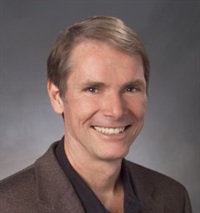EP20 Workshop 34 - Working with Resistance as "Generative Complementarities" - Robert Dilts
- Average Rating:
- Not yet rated
- Topic Areas:
- Neuro-Linguistic Programming (NLP) | Workshops | Resistance
- Categories:
- Evolution of Psychotherapy | Evolution of Psychotherapy 2020
- Faculty:
- Robert Dilts, BA
- Course Levels:
- Master Degree or Higher in Health-Related Field
- Duration:
- 2 hours
- Format:
- Audio and Video
- Original Program Date:
- Dec 13, 2020
- License:
- Never Expires.
Tags: Resistance
Description
Description:
A core premise of Generative Change work is that “everything contains the potential of its opposite/complement.” The more we increase one side of a complement the more we increase the potential of its opposite/complement. When we seek to bring more of something into the world (light), we simultaneously invite its opposite (shadow). In fact, we often want to bring more of something (light) because we know its opposite (darkness). Having only one side of a complement creates imbalance. This is frequently the case in psychotherapy, where the complement to a client’s desired change shows up as a form of resistance. This workshop will show that when client’s can be supported to hold both sides of a seeming conflict or struggle from a generative state, surprising new possibilities emerge.
Educational Objectives:
- Explain the process of complementarity and compensation and relevance to resistance
- Describe the generative capacity of holding opposites within a mindful state of curiosity
- Show how to work creatively with resistance in order to transform it into a resource
*Sessions may be edited for content and to preserve confidentiality*
Credits
Handouts
| Working with Resistance as "Generative Complementarities" (6.5 MB) | Available after Purchase | ||
Faculty

Robert Dilts, BA Related Seminars and Products
Robert Dilts, has been a developer, author, trainer and consultant in the field of Neuro-Linguistic Programming (NLP) - a model of human behavior, learning and communication - since its creation in 1975 by John Grinder and Richard Bandler. A long time student and colleague of both Grinder and Bandler, Robert also studied personally with Milton H. Erickson, M.D., and Gregory Bateson.


